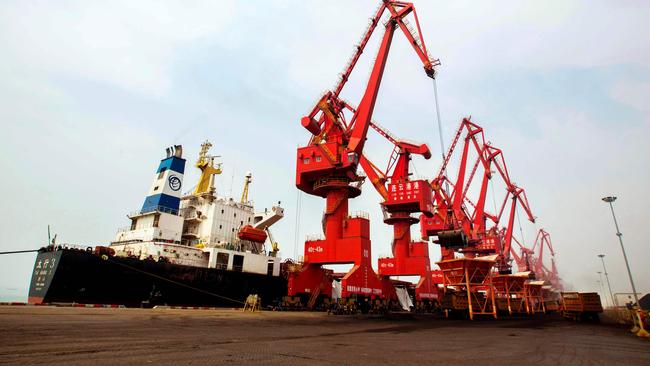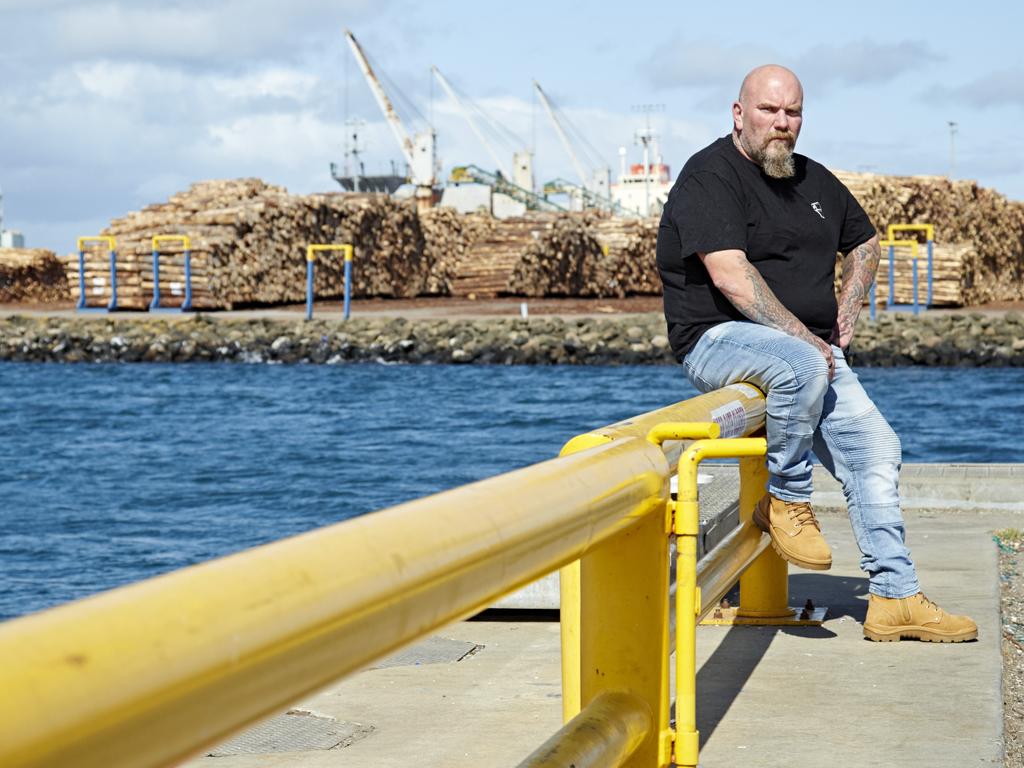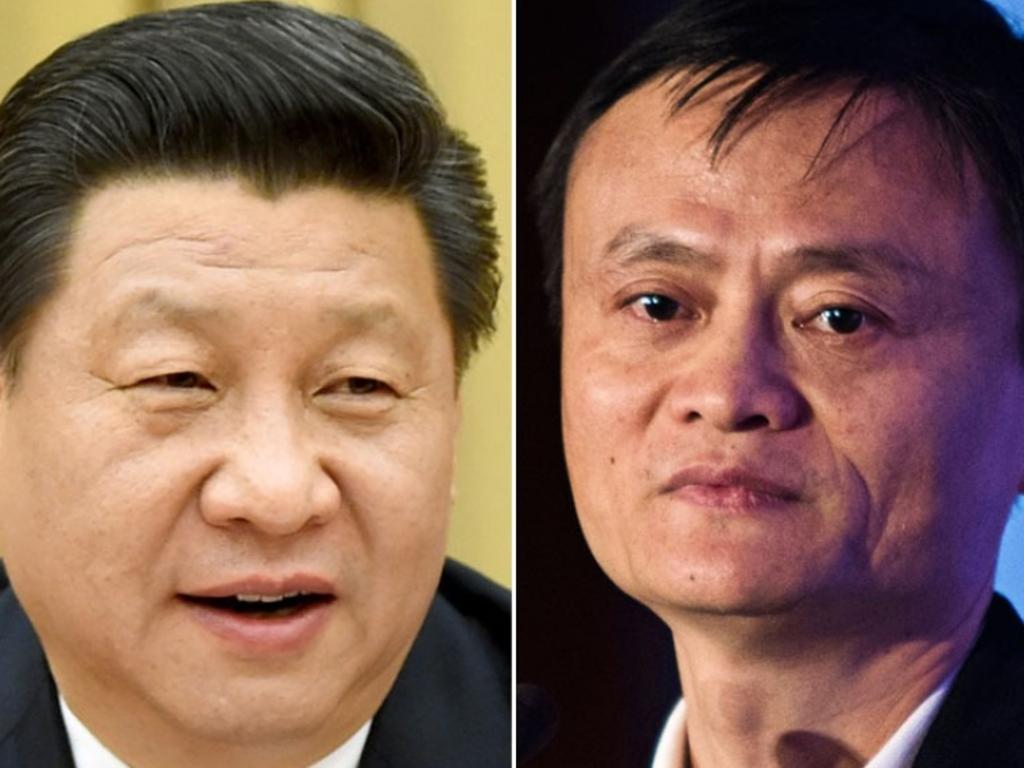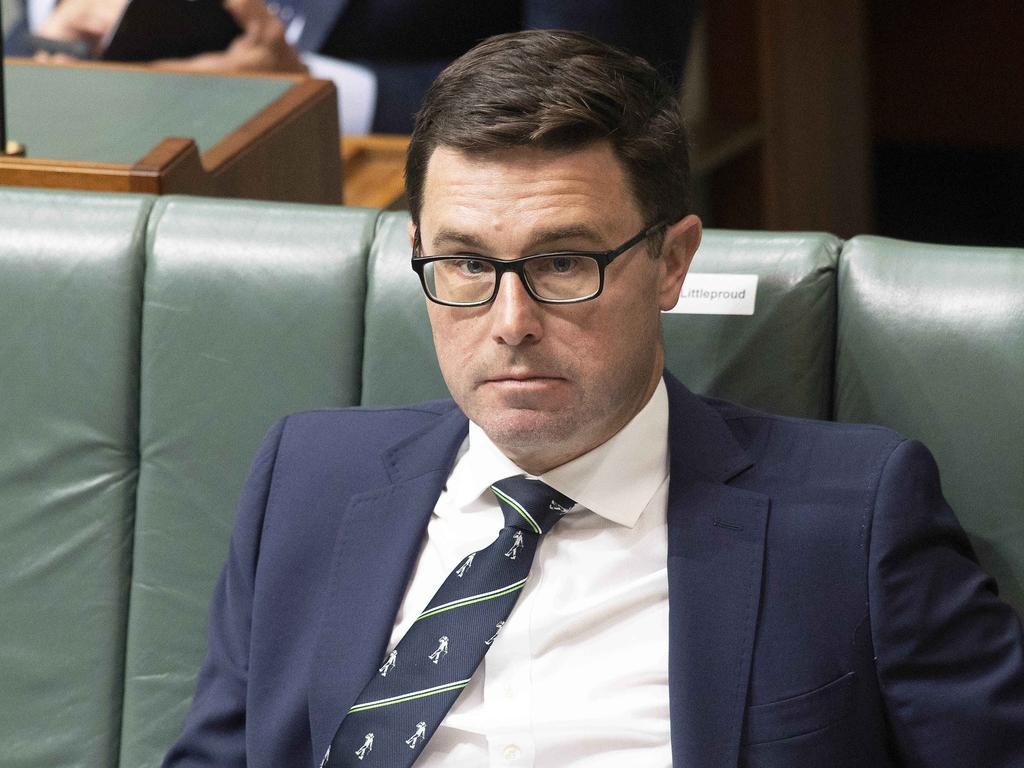Australian coal stranded at Jingtang as China trade fight worsens
New data shows all of the 20 giant ships held up in the Chinese port of Jingtang contain Australian coal, with most marooned since June.

Australia’s rocky trade relationship with China has taken another hit with data showing all of the 20 giant ships held up in the Chinese port of Jingtang contain Australian coal, with the majority stuck offshore since June.
Fifteen of the ships have been anchored since June at the northern Chinese port, one of the key hubs for Australia’s metallurgical coal used to make steel. The remaining six ships have been stuck for at least a month, according to shipping data analysed by Bloomberg.
The ships hold between 2m to 3m tonnes of coal and all of the vessels departed from Australian ports with nine from the BHP owned Hay Point Terminal in north Queensland, eight from Gladstone Port and the remaining four from Dalrymple Bay Coal Terminal.
Two of the ships that departed Hay Point have been stuck at Jingtang since the first week of June with the bulk of the Australian carriers arriving in the subsequent weeks of June and several of the biggest ships holding 174,000 tonnes of coal on board, Bloomberg data shows.
The Jingtang port is also where Chinese authorities have prevented an Indian vessel packed with Australian coal from leaving Chinese waters, even after Japan agreed to purchase the black-listed cargo to end a more than five- month standoff. The bulk carrier, containing 160,000 tonnes of coking coal, had been turned into a “floating prison” according to the National Union of Seafarers of India.
The stranded Australian coal shipments are likely to hike trade concerns between the two countries amid a broader diplomatic scuffle which has seen China embark on a sweeping trade retaliation campaign, banning timber and looming restrictions on wine and lobster exports and barley.
The fallout has also extended into Australia’s gas industry after Woodside Petroleum revealed Chinese buyers axed a potential deal to buy a stake in its $16bn Scarborough gas project amid trade tensions. Resources Minister Keith Pitt has sought to reassure the sector that spending will return to the industry.
China’s coal imports in October plunged by 47 per cent from a year earlier, reflecting strict import quotas and raising fresh concern over the outlook for one of Australia’s biggest export earners.
Australian coal producers now face a wait until detailed China trade data is released later in November to ascertain whether it has been the subject of bigger cuts than its competitors. Early indications hint that Australian coal may have taken a bigger cut than other nations with China’s imports from Australia in October falling 62 per cent on September levels, according to Refinitiv shipping data cited by Reuters.
The Morrison government has trod a cautious diplomatic line over the mounting trade tensions. Australia’s Ambassador to China, Graham Fletcher, said nations must adhere to international rules and their World Trade Organisation obligations.
“When trade is treated as a political tool, we all suffer,” Mr Fletcher said on Thursday, according to Bloomberg.
Trade Minister Simon Birmingham on Thursday said Australian authorities had contacted their Chinese counterparts about the stranded Indian seafarers.
“It is unacceptable for such uncertainty to exist over such a long period of time that effectively leaves sailors stranded at sea,” Senator Birmingham said. “This isn‘t just a trade issue, it is an issue about respect and regard for the wellbeing of the individuals,” he said.
China’s foreign affairs ministry said China had been “providing convenience for the sailors involved” while complying with its COVID-19 port restrictions.
At a daily press briefing in Beijing, foreign ministry spokesman Wang Wenbin on Thursday said the reason China-Australia relations were strained was “very clear”.
Mr Wang said the Australian government had repeatedly “spoken and acted out of turn” on Hong Kong, Xinjiang and Taiwan, had accused China of engaging in “so-called ‘intervention and infiltration activities’ in Australia”, and created barriers to “normal exchanges and co-operation” between the two countries.
“In order to get out of the predicament, the key lies in Australia facing squarely the crux of the current setback, looking at China and China’s development objectively and rationally, handling bilateral relations in accordance with the principles of mutual respect and equal treatment, and doing more things conducive to enhancing mutual trust and promoting pragmatic co-operation between the two countries,” the foreign ministry spokesman said.
“Let him who tied the bell on the tiger take it off. One‘s fault should be amended by oneself,” he said.





To join the conversation, please log in. Don't have an account? Register
Join the conversation, you are commenting as Logout